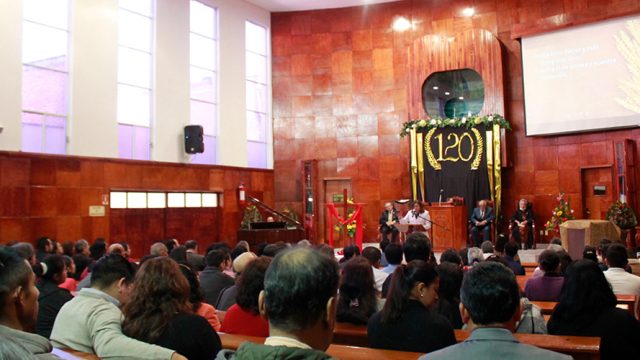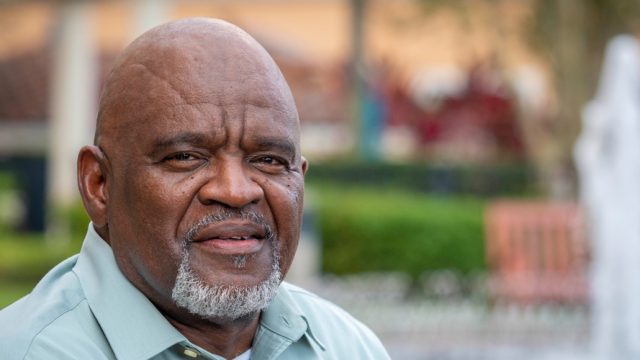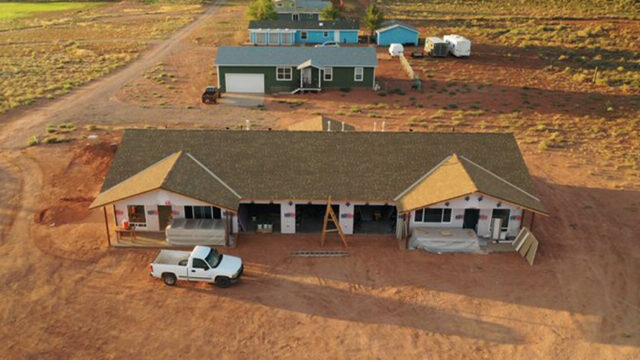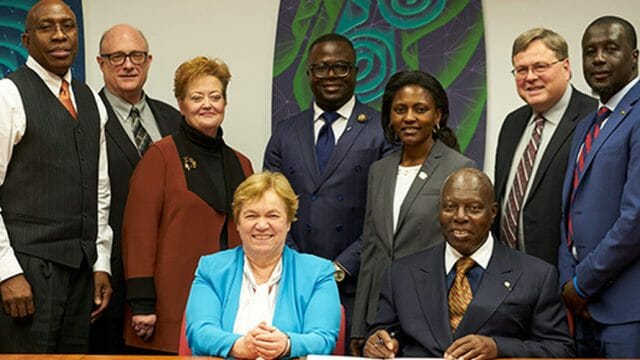Maranatha Volunteers International participants are driven by a clear set of presuppositions.

Maranatha Volunteers International, a supporting ministry of the Seventh-day Adventist Church that coordinates short, intensive church and school building projects and the drilling of water wells around the world, turns 50 this year. The ministry celebrated this milestone during its annual convention in Sacramento, California, United States, September 19-21, 2019.
Volunteers and sponsors of Maranatha Volunteers International are a happy bunch of people, and it shows. Comprising all ages and an increasingly diverse set of ethnicities, advocates of this supporting ministry of the Seventh-day Adventist Church live to tell the story. It is a story of a vision to serve God by serving the least of these and about how rewarding it has proven to be.
As is usually acknowledged, you can argue to discredit an idea or a doctrine, but a life story based on a personal experience can only be accepted or rejected. Either you give credence to it or refuse to believe it. Truth be told, the candid testimonies of a sizable number of Maranatha volunteers—some of which Adventist Review plans to share in future articles—are very hard to disavow. And like many other things in life, they play out upon a clear set of presuppositions.
Service Is Joy
You don’t need to chat with Maranatha volunteers and sponsors for too long before unearthing their presuppositions. For one, they live on the premise that Christians—particularly Seventh-day Adventists—are in this world to serve God and neighbor. It is a given. As one unnamed old Maranatha supporter put it to me, “Life is short, so you’d better get up, move out of your comfort zone, and do something for Jesus.”
Second, Maranatha advocates are convinced that serving others brings joy. This joy, many supporters emphasize, is not found in money or possessions. “To see the smiles of the people we help,” said a seasoned volunteer who recently served in Kenya, “there’s nothing on earth like it.”
God Is Leading
Third, Maranatha exists under the premise that it’s a God-born and God-led initiative, as Don Noble, MVI president since 1982, emphasized.
“God had a plan; He led it, and it became a reality,” he said. “The biggest impact [we had] was to realize, as a board and as an organization, that God was in charge and that He could be trusted.”
Fourth, Maranatha supporters believe that serving should make concrete, tangible, and positive changes in others’ lives.
“We know [Maranatha] is not about buildings,” said Pacific Union Conference president Ricardo Graham, who attended the 50th-anniversary event. “It is about building lives.”
At the same time, helping others transforms the lives of those who get involved.
“I have seen teens changed,” Maranatha volunteer Dan Klein Jr. said in reference to projects specifically geared to teenagers. “They become more involved, more engaged in worship.”
Klein said that he had witnessed how a Maranatha project can grow young and old into leaders for Christ, starting with the ones closest to him.
“[It] changed my spiritual trajectory, and my family’s,” Klein said. “God uses teens and adults for His kingdom and His glory.”
A Family of Thousands
Another solid presupposition that undergirds everything Maranatha does is that no matter who you are or where you come from, serving together somehow gives you a “blood connection.” “We are a family here,” said John Marriott, who has participated in dozens of Maranatha projects through the years.
At the celebration, Marriott, a lay church member who provides plumbing and electrical services at Maranatha projects, said he usually remembers faces and names. It is the place names that get all mixed up.
“Sometimes I meet friends with whom we have built churches and schools, but I am not sure where or when I saw them last,” Marriott explained. “Was it Zambia? Kenya? Honduras? And they can’t remember it either,” he said with a hearty laugh.
Come, Lord Jesus
Above all, volunteers and sponsors honor the name Maranatha—an Aramaic term meaning “The Lord is coming”—by working under the belief that Jesus is coming soon. It is something, ministry leaders said, that has driven Maranatha since its first project in 1969.
It also colors everything the ministry does, including its 50th-anniversary celebration.
“We don’t celebrate the fact that we are still [on this earth],” Maranatha financial vice-president Susan Bushnell said in a prayer during the opening reception, “but we celebrate because You [Jesus] are coming soon.”
It is a clearly articulated notion through every part of the weekend program—Jesus is coming soon, and each one of us can do something to better tell the news before He comes.
Do Likewise
Maranatha volunteers show that the joy of service is contagious and that their experiences are moving. They tell a story of ambitious, even far-fetched plans that, thanks to what they believe was God’s miraculous intervention, came to pass.
As I said earlier, we can either believe or refuse to believe those stories. But perhaps those are not the only two options. Now that I think of it, I find a third one: Maranatha stories of service invite those not involved in the ministry to give it a try. The stories serve as a motivation for the rest of us to find joy in serving God by serving the least of these. As I see it, they prompt us to streamline our values and priorities.
Once we do, when we understand who is our neighbor in need, those stories will certainly drive us to follow Jesus’ suggestion to the lawyer of old when He told him, “Go and do likewise” (Luke 10:37, NKJV).








